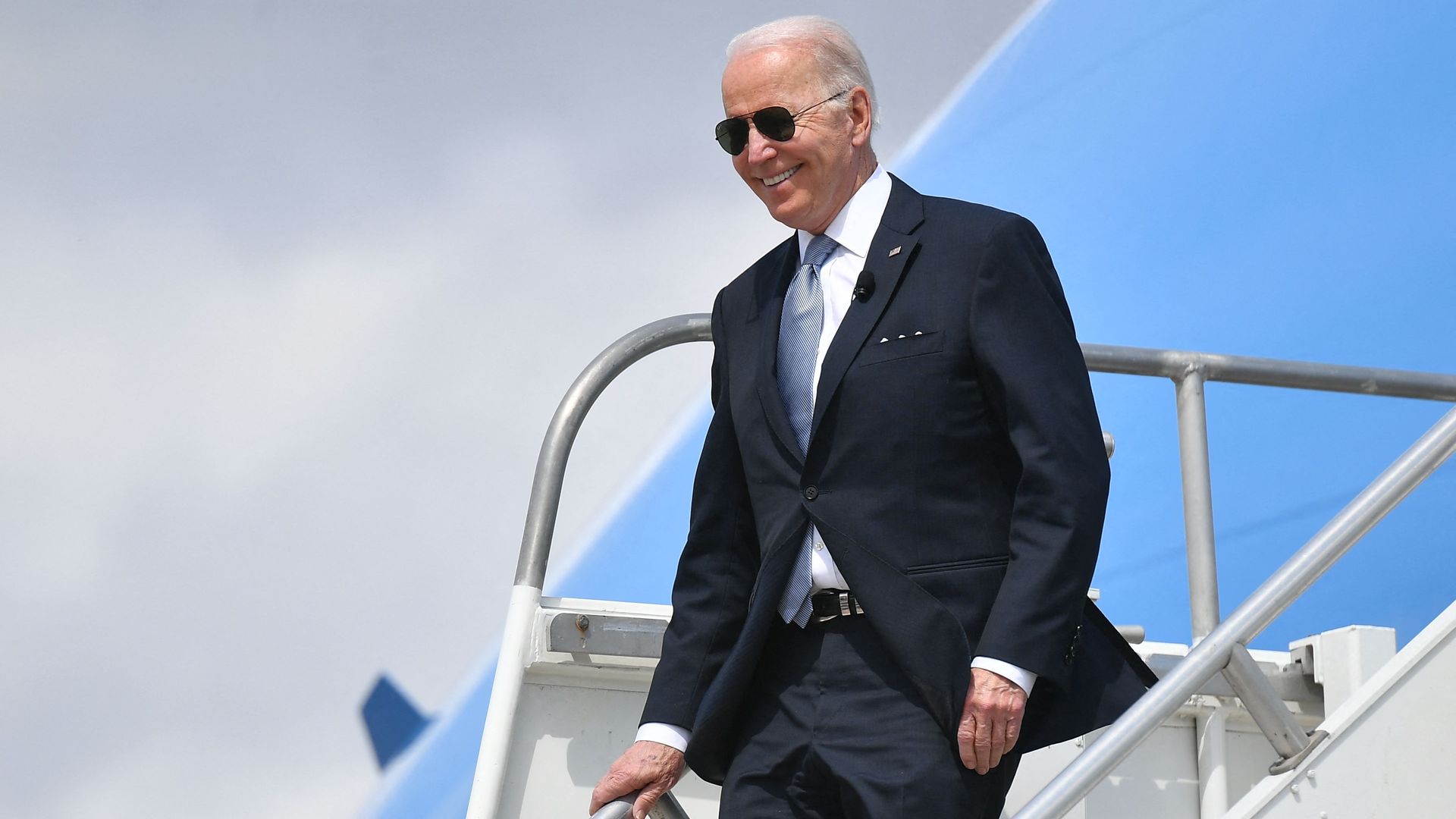Biden to visit South Korea and Japan
Add Axios as your preferred source to
see more of our stories on Google.

President Biden deplanes from Air Force One on Thursday after arriving in Portland, Oregon. Photo: Mandel Ngan/AFP via Getty Images
President Biden is finalizing plans to visit South Korea and then Japan in late May, letting him show support for two crucial allies amid increasingly hostile behavior from North Korea, Axios has learned.
Why it matters: The trip is a reminder the Biden administration — and the world — face security threats beyond Russia’s invasion of Ukraine. It also shows how the president is returning to a more robust travel schedule as the White House eases many of its pandemic protocols.
- North Korea has conducted more than dozen weapons tests this year, including last month’s test launch of an intercontinental ballistic missile capable of hitting the U.S. mainland.
- By visiting South Korea shortly after a new pro-alliance president is inaugurated, Biden is signaling his support for the new government — and its more confrontational approach to North Korea leader Kim Jong-un.
- The Japan portion of the trip, which has been scheduled longer, will allow Biden to reaffirm the importance of Japan on a range of global issues and highlight the strength the trilateral alliance.
What they're saying: The National Security Council did not immediately respond to a request for comment about the travel plans or reasons behind them.
Between the lines: The president promised to ramp up his travel earlier this year and has visited both Iowa and New Hampshire during the past two weeks.
- He traveled on Thursday to Portland, Oregon, and Seattle to promote the bipartisan infrastructure law.
- He also was hosting the first two on-the-road fundraisers of his presidency while in the Pacific Northwest.
The big picture: Supporting Ukraine in its fight against Russia is still occupying the majority of the administration’s foreign policy bandwidth.
- But Asian partners and allies, who've helped impose export controls on technology transfers to Russia, play a key role.
- Officials also want to prepare allies for a protracted conflict with Russia. Biden will need their help in weaning the world off of Russia’s energy.
With the European Union reducing its imports of Russian oil and natural gas, Japan and South Korea have already diverted some of their supplies to Europe.
- That was easier to do this year with a mild Asia winter and sanctions against Russia starting in late February, but surviving next year’s full winter will force some difficult burden sharing.
- Japan and South Korea, two of the world's biggest liquified natural gas importers, may have to share the global LNG supply with Europe.
Driving the news: Biden has long been planning a Japan visit, in part for a summit with the leaders of the so-called “Quad."
That security group includes the U.S., Japan, Australia and India.
- Adding a South Korea stop will help bolster the new president, Yoon Suk-yeol. He won a narrow victory by taking a tougher stance on North Korea than the previous president. He also promised to rebuild relations with the U.S.
- Yoon will be inaugurated on May 10.
- Strengthening the trilateral relationship between the U.S., Japan, and South Korea is also crucial to the administration’s plan to counter China’s influence in the Indo-Pacific region.
Go deeper: A U.S. delegation is traveling this week to the Solomon Islands, a South Pacific archipelago with fewer than 700,000 inhabitants.
- A key battleground in World War II, it's unexpectedly become ground zero for current U.S.-China competition.
